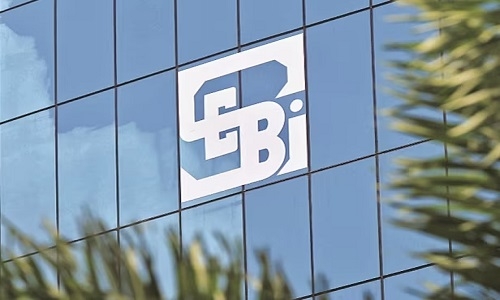MUMBAI: On Friday, the Securities and Exchange Board of India (Sebi) approved a number of proposals, such as launching a beta version of the T+0 settlement, easing the process of doing business for companies that are going public, and exempting specific foreign portfolio investors (FPIs) from additional disclosure requirements.
In an effort to facilitate business dealings, the markets regulator approved a proposal during its annual board meeting to exempt foreign portfolio investors (FPIs) with over 50% of their Indian equity assets under management (AUM) from additional disclosure requirements if certain requirements are met and the FPIs’ concentrated holdings are in a listed company without an identified promoter. Sebi announced a consultation in this regard in August 2023.
In its eight-page statement, Sebi stated, “Such FPI holds not more than 50% of its India equity AUM in the corporate group, after excluding its holding in the parent company with no identified promoter.”
The regulation was implemented primarily in response to the Adani-Hindenburg case from the previous year, wherein the regulatory framework’s laxity in identifying the true owners of multiple investments prevented Sebi from establishing the beneficial owners of certain foreign portfolio investments in Adani stocks.
FPIs that are sovereign wealth funds (SWFs), publicly traded companies on some international exchanges, public retail funds, and other regulated pooled investment vehicles with diversified global holdings are exempt from enhanced disclosure requirements.
Additionally, the regulator has made available to investors the beta version of the T+0 settlement cycle, in accordance with its announcement on Monday. The fund and securities for a transaction will essentially be settled on the same day that it is traded, according to the T+0 settlement. The regulator says that as of March 28th, this will go into effect.
In the meantime, Sebi will keep discussing with the beta version users and determine the next step in three to eight months.
FPIs will fall into two categories regarding the timeliness of their disclosures: Type I and Type II. Within seven working days of the change’s occurrence, FPIs are required to notify their designated depository participants (DDP) of any Type I material changes. But as of right now, supporting documentation for the same must be submitted within 30 days of the modification. Within 30 days of any other significant changes (classified as Type II), FPIs are required to notify their DDP of the changes and provide supporting documentation.
Furthermore, Sebi will now permit FPI registrations that expire due to non-payment of fees to be reactivated within 30 days of that expiration. This is just another action taken by the regulator to make doing business easier.
According to Sebi, “during this 30-day period, such FPIs shall also be permitted to dispose of their securities holdings.” In addition, the FPI will have 180 days to sell its securities if it decides not to reactivate its registration within those 30 days.
Furthermore, the regulator eliminated the requirement for a 1% security deposit in order to facilitate business dealings. In fact, Sebi recently asked for public input to remove the 1% security deposit that has been in place for years in public/rights issues, based on the recommendations of an expert committee.
Under Sebi’s ICDR (Issue of Capital and Disclosure Requirements) Regulations, the action is intended to facilitate capital formation, encourage more companies to access the primary markets for funding, and make doing business easier.
Without being recognised as promoters, promoter group entities and non-individual shareholders holding more than 5% of the post-offer equity share capital may make contributions towards the minimum promoters’ contribution (MPC).
In order to verify rumours, listed entities must establish objective standards that are consistently evaluated based on material changes in the price of equity shares. The promoters, directors, and important managerial staff will be required to promptly verify any rumours that are purported to have an impact on their scrips.





























